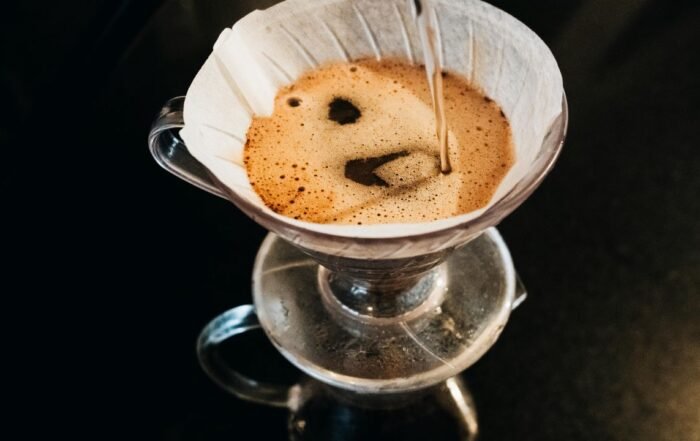Ever found that abandoned bag of coffee beans tucked away in your kitchen and wondered if they were still good to brew? You are not unique. Although coffee doesn’t “expire” in the conventional sense like milk or bread, it does lose its magic over time.
USDA claims that, though having best-by date, coffee is a shelf-stable beverage without expiration. Knowing how long your coffee lasts helps you to get the most value for your money and helps you to avoid unsatisfying cups.
Does Coffee Expire?
How long does coffee stay good and tasty?
Although coffee tastes excellent for the first few months following roasting, it will slowly deteriorate even in premium packing. Consider coffee freshness like a gradual fade instead of a drop: your morning coffee won’t abruptly become intolerable, but those rich, complicated flavors will quietly fade away, complex flavors will quietly slip away.

How long is coffee good for?
Here’s where things get intriguing, the kind of coffee you’re keeping has a great impact on how long it stays fresh:
| Type of Coffee | Approximate Expiration Time |
| Whole Bean Coffee (unopened) | 6–12 months past roast date |
| Whole Bean Coffee (opened) | 2–4 weeks |
| Ground Coffee (unopened) | 3–5 months past roast date |
| Ground Coffee (opened) | 1–2 weeks |
| Instant Coffee (unopened) | 2–20 years |
| Instant Coffee (opened) | 2–20 years |
| Brewed Coffee (room temperature) | 12–24 hours |
| Cold Brew | 7–10 days (refrigerated) |
Generally speaking, you can keep well-packaged, unopened coffee for up to a year, after which the quality gradually declines. The crucial word here is “quality”; though your coffee won’t make you ill following these timeframes, it might not provide that perfect cup you’re yearning for.
How Can You Tell if Coffee Is Spoiled?
Let’s be honest, coffee usually doesn’t go “bad” in a hazardous manner. Coffee doesn’t quite “go bad” as some other foods do. It degrades or becomes risky to consume. If not stored correctly, nevertheless, it can lose its fresh flavor and taste. Still, there are some warning indicators to be aware of:
Visual cues: Look for indications of mold development, especially if your coffee has been subjected to dampness. Toss it immediately if you notice fuzzy growths or discoloration not already present.
Smell test: Fresh coffee should smell well, like coffee: strong and fragrant. Should you be unsure as to whether you can drink expired coffee, the best course of action is to open the packet, sniff the grounds, examine them and rub them between your fingertips, then you will know if they are rotten. While really spoiled coffee may have an off-putting odor, stale coffee usually smells dull or musty.
Touch and texture: Good coffee grounds should feel dry and slightly oily, depending on the roast. Say farewell if they seem clump-like, unusually wet, or have radically changed texture.
Taste: Trust your taste buds if your brewed coffee tastes sour, bitter in an unpleasant manner, or just plain “off.”
How to Store Coffee?
Good storage is your coffee’s closest pal. Several causes might cause coffee to become rotten. It depends not only on the roast date and variety of coffee but also on if it has been exposed to air, humidity, light, heat, or bad storage. Here’s how to preserve your coffee’s happiness:
The golden rules: Consider coffee storage like protecting a vampire, keep it away from air, light, heat, and water. Coffee’s worst foes are these four factors.
Container choice: Invest in an airtight container, preferably opaque. Those cute glass jars might look Instagram-worthy, but they’re letting light destroy your coffee’s flavor compounds. Original packaging works too, as long as you seal it properly after each use.
Location matters: Skip the refrigerator or freezer unless you’re storing coffee for months. The constant temperature changes create condensation, which equals moisture, coffee’s nemesis. Instead, choose a cool, dark cupboard away from the stove or any heat sources.
Portion control: If you buy coffee in bulk, consider dividing it into smaller portions. This way, you’re only exposing a small amount to air each time you open a container.
Does Brewed Coffee Go Bad?
Absolutely, and considerably faster than you may suppose. Simple black coffee without milk, though, can only last 12 to 24 hours at room temperature before it begins to taste fairly horrible.
Hot brewed coffee: Your countertop’s pot of coffee? It begins to fade after 30 minutes and grows increasingly bitter as it cools. Drinking day-old coffee won’t harm you, but your taste buds might file a complaint.
Cold brew concentrate: This lasts far longer, up to seven to ten days in the fridge. Cold brewing methods and storage techniques allow flavors to be maintained more effectively than those of heated brewing.
Coffee with milk or cream: Now we are in risky terrain. Any dairy coffee should be refrigerated and consumed within a day or two max, just as any other dairy product. Bacteria thrive on milk; their ideal environment is room temperature.

What Happens if You Drink Expired Coffee
The good news is: Yes, if kept correctly and shows no symptoms of spoilage like mold or off smells, expired coffee is still fit to drink. You might not like the flavor, though.
Safety-wise: Usually acceptable to eat are old coffee grounds or beans. Low moisture content and intrinsic acidity of coffee make it rather hostile to dangerous bacteria.
Taste-wise: Here is where you will see the true effect. Stale coffee usually smells bland, excessively bitter, or just plain bland. Coffee beans’ smells and flavors come from their oils and volatile compounds. These substances start to degrade during roasting of beans. This means the coffee dulls and loses its deep flavor.
Digestive considerations: Some individuals discover that very elderly coffee is harder on their stomach, perhaps because of high acidity levels or decomposition of chemicals over time.
The bottom line? Though expired coffee won’t land you in the hospital, life’s too brief to drink awful coffee. Get whole beans and grind right before brewing. Open your coffee and use it within two to four weeks. Your morning ritual calls for better than a dismal, tasteless cup of coffee.
Keep in mind that the “best by” date on coffee packages refers more to quality than to safety. Trust your instincts, keep your coffee well, and don’t hesitate to begin over if your present stash has gone better days. Good coffee is among life’s basic joys after all; hence, why should one sacrificeless brew.
Try These Popular Coffee Recipes
- Affogato
- Cold Brew
- Espresso
- Americano
- Mocha
- Macchiato
Frequently Asked Question (FAQs)
Does instant coffee expire
Yes, instant coffee has a best-by date instead of expiration date. If the packaging is good enough it can last for years. Coffee pods can also maintain freshness until the best-by date.
What happens if you drink expired coffee
The expired coffee cannot cause harm but still can upset your stomach. You might find its taste really bad. The quality of flavor also fades away over time.
Is it safe to drink expired coffee
The short answer is yes,it is safe to drink expired coffee but it is not recommended to consume expired coffee.
Do ground coffee expire
Technically coffee grounds do not have an expiration date. But coffee grounds have best-by date mentioned in their labels. After that specific date, coffee grounds must be discarded.








